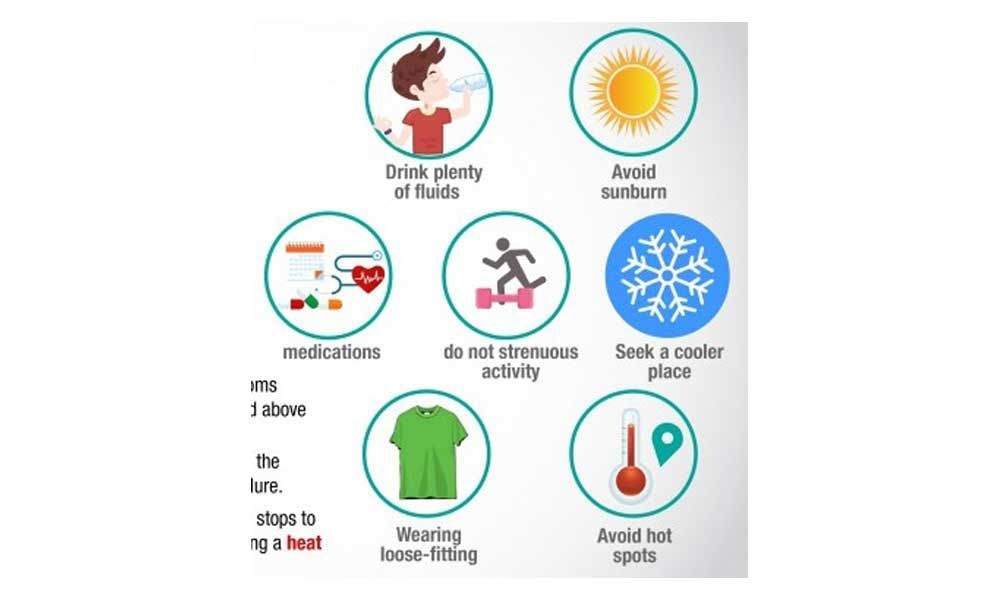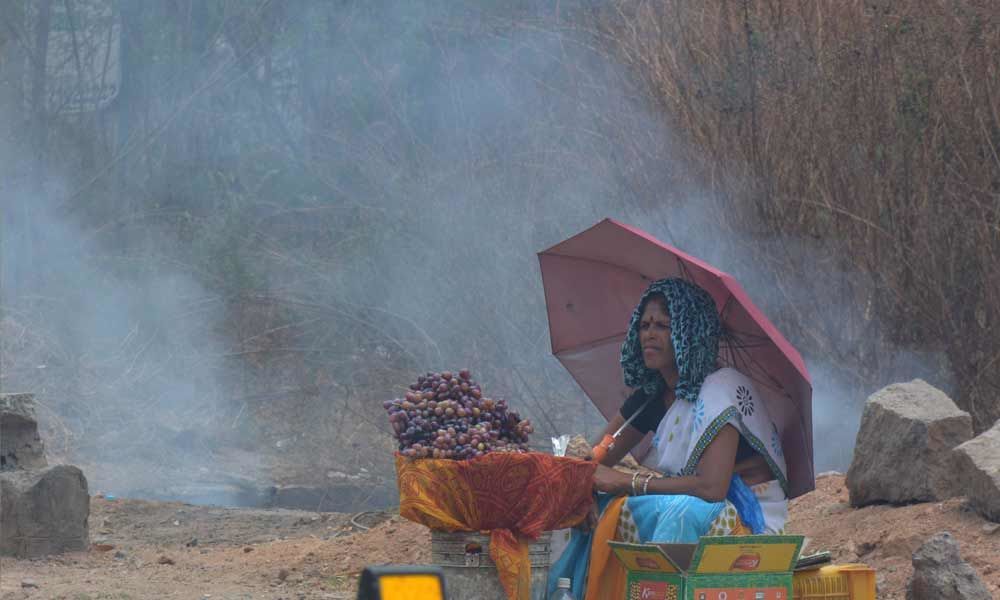Gear up for severe heat waves in city
In 2018, the highest temperatures recorded in Hyderabad was 46.1 degrees Celsius and Khammam 48 degrees Celsius.
Hyderabad: In 2018, the highest temperatures recorded in Hyderabad was 46.1 degrees Celsius and Khammam 48 degrees Celsius.
Hyderabad can expect a rise in temperature by 3-4 degrees above its normal this year, IMD predicted that the temperatures are set to cross 40 degrees towards March end and some 15-20 heatwave days are expected in this summer season.
Director, India Meteorological Department (IMD), YK Reddy, recently emphasised that climate change had been resulting in severe heat waves in the last four years and there was about 1.5 degree Celsius change in temperatures in Telangana State.
As a result, more heat waves, also called 'silent killers' are being witnessed in the State. This needs immediate measures to mitigate the heat risk and its associated deaths.
A heat wave is an extreme event involving a period of abnormally high atmospheric temperatures recorded more than 5-6 degrees beyond normal temperature, which can lead to physiological stress and even death.
Recently, the TS government came out with a 'Heat wave action plan' which advises the PHCs to keep ready oral re-hydration solution, IV fluids and ice packs for treatment of sunstroke victims.
Heat wave effects
Scorching sun and heat waves can cause number of illnesses.
From mild heat cramps to serious heat-strokes, it cannot be taken lightly.
However, doctors say that there is a physiological mechanism in our body which maintains our internal temperature despite changes in environmental temperature.
This process is necessary for proper functioning of our internal organs.
But if external temperature increases beyond a certain limit, body's ability to regulate internal temperature becomes exhausted and leads to elevation in internal body temperature.
This impairs the functioning of our internal organs and may cause serious damage.
Stress due to heat
Generally human body can cope up with a temperature of around 37 degrees Celsius but rise in temperature leads to sweat and increases blood circulation to the skin's surface. This process gives a cooling effect.
But when the body fails to combat heat exposure, it develops heat-related symptoms.
Heat syncope or fainting
This is the result of exertion in hot climate condition.
In this condition, body tries to cool itself, but exertion causes the blood vessels to dilate to such an extent that blood flow to the brain is reduced.
Body cramps
Feel painful cramps in the leg or abdomen muscles.
If anyone indulged in an activity and feel cramps, immediately stop your movement and consume salted drinks. This helps in replenishing fluid volume.
Heat exhaustion
A person affected with heat exhaustion may feel weakness, nausea, hypotension, headache, rapid heartbeats, and vomiting.
If any person encounters heat exhaustion, loosen his/ her clothes or rub his skin with cool water. Heat exhaustion, if left untreated could lead to heat stroke, the most serious form of heat-related illness.
Heat stroke
Heat stroke can result when the body's temperature goes up to 40.
Heat stroke shows signs as headache, dizziness, and weakness, which can be followed by confusion or euphoria and a sudden loss of consciousness.
Heatwave Action plan warns the persons who work in outdoor settings are directly affected by extreme temperature particularly during peak hours (11am-5pm).
It also affects people who do not take measures to keep their body cool during summer.
Also, when someone parks his car outside, the inside temperature of the car spikes and when the person gets back in the car, it can prove harmful.
Heart and Heat
Usually, when the weather is hot, body sweats to cool down, but this means that losing of more fluid than usual from body.
This can drop the blood pressure and make heart beat faster.
Dehydration increases blood viscosity and increases the chances of clogging of the circulatory system.

















